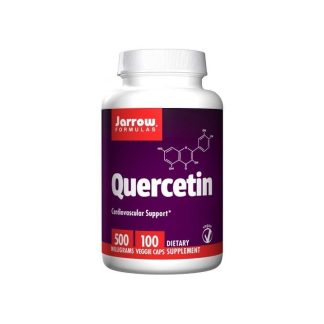Digestive enzymes are vital for maintaining optimal health. They break down food into nutrients, which your body can then absorb and use. As we age, our bodies produce fewer digestive enzymes, leading to digestive issues. This comprehensive guide will explore digestive enzymes, their benefits, and the role of digestive enzyme supplements.
Quick Links to Important Content:
- What are Digestive Enzymes?
- Why are Digestive Enzymes Important?
- Types of Digestive Enzymes
- Benefits of Digestive Enzyme Supplements
- How to Choose Digestive Enzyme Supplements
- Frequently Asked Questions (FAQs)
What are Digestive Enzymes?
Digestive enzymes are proteins that your body produces to break down the food you eat into absorbable nutrients. They’re produced and secreted by your salivary glands, stomach, pancreas, and small intestine. They act on various types of food substances to break them down into simpler forms that your body can easily absorb.
Why are Digestive Enzymes Important?
Digestive enzymes are crucial for your health for several reasons. They help break down large, complex food molecules into smaller ones that your body can absorb and use for energy. They also aid in the absorption of nutrients from your diet, promoting overall nutritional health. A deficiency in digestive enzymes can lead to malabsorption issues, leading to nutrient deficiencies.
Types of Digestive Enzymes
There are several types of digestive enzymes, each responsible for breaking down different types of food substances. Here are the primary ones:
- Proteases and peptidases: Break down proteins into amino acids.
- Lipases: Break down fat into three types of fatty acids.
- Amylases: Break down carbohydrates into simple sugars.
- Nucleases: Break down nucleic acids into nucleotides.
Benefits of Digestive Enzyme Supplements
Digestive enzyme supplements can be a beneficial addition to your health routine, especially if your body doesn’t produce enough enzymes naturally. Here are some benefits of taking these supplements:
- Improved digestion: Supplements like Omega-Zyme can help improve digestion and nutrient absorption, reducing symptoms like bloating, gas, and indigestion.
- Increased energy: By aiding in the breakdown and absorption of nutrients, these supplements can help increase your energy levels.
- Enhanced gut health: Some digestive enzymes can help maintain a healthy gut microbiome, which is essential for overall health.
How to Choose Digestive Enzyme Supplements
Choosing a digestive enzyme supplement can be challenging due to the variety of products available on the market. Here are some tips to help you select the right one for you:
- Consider your needs: Different supplements contain different types and amounts of enzymes. Consider your dietary habits and health needs when choosing a supplement.
- Quality and purity: Choose a supplement from a reputable brand that guarantees the quality and purity of its products.
- Look for a comprehensive formula: A good digestive enzyme supplement will have a comprehensive formula that includes different types of enzymes.
Frequently Asked Questions (FAQs)
1. Can I take digestive enzymes daily?
Yes, digestive enzyme supplements can be taken daily. However, it’s always best to consult with a healthcare provider before starting any new supplement regimen.
2. Are there any side effects of taking digestive enzymes?
Digestive enzyme supplements are generally safe for most people. However, some people may experience side effects such as stomach upset, diarrhea, or allergic reactions. If you experience any adverse effects, stop taking the supplement and consult with a healthcare provider.
3. Can digestive enzyme supplements help with weight loss?
While digestive enzymes aid in the breakdown and absorption of nutrients, there’s no direct evidence that they can aid in weight loss. However, by supporting optimal digestion and nutrient absorption, they may indirectly contribute to weight management.
4. Can I take digestive enzymes with other supplements?
Yes, digestive enzymes can generally be taken with other supplements. However, it’s always best to consult with a healthcare provider to ensure that the combination is safe and suitable for your individual health needs.
5. How long does it take for digestive enzymes to work?
The effects of digestive enzymes can vary depending on the individual and the type and dosage of the supplement. Some people may notice improvements in their digestion within a few days, while others may need a few weeks.
Final Thoughts
Digestive enzymes play a critical role in our bodies by helping us break down food into absorbable nutrients. For some people, supplementing with enzymes like Omega-Zyme can offer several benefits including improved digestion, better nutrient absorption, and overall enhanced gut health. It’s always crucial to consider your personal health needs and consult with a healthcare professional before starting any new supplement regimen.
 EU-countries,
EU-countries,  UK and
UK and  Norway
Norway


 English
English

